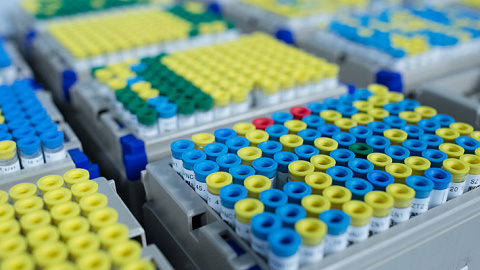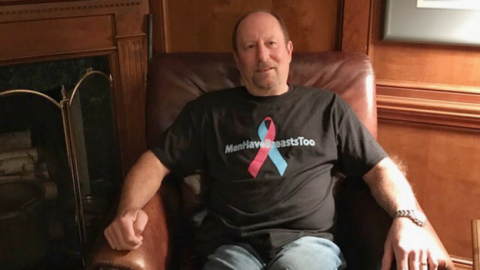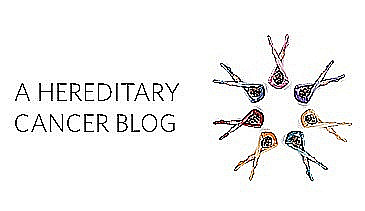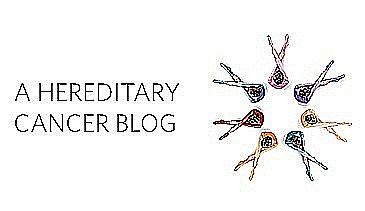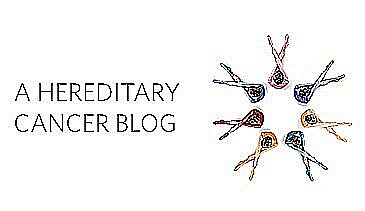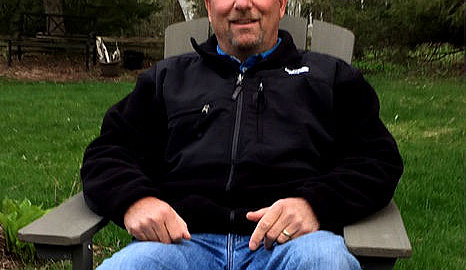- By Deepti Babu, MS, CGC
- Posted April 3, 2017
Current Genetic Testing Guidelines Miss Some Families with CDH1 Mutations
Hereditary diffuse gastric cancer (HDGC) is an inherited cancer syndrome caused by CDH1 gene mutations. It occurs most frequently in Japan and eastern Asia; current incidence in the U.S. is estimated at 10-40 individuals per 100,000.1 Individuals with mutations in the CDH1 gene have up to an 80% lifetime risk of diffuse gastric…
- By Bill Rotter
- Posted March 16, 2017
Why I Liquidated my Business to Advocate for Male Breast Cancer Awareness
Several years prior to my breast cancer diagnosis, I started to think about the right time to liquidate my business and sell the real estate. At the time, my brother and I owned two Ace hardware stores in the Milwaukee area with approximately 100,000-sq. ft. of retail space, warehouse and offices. I knew it would be a physically daunting undertaking…
- By Selvi Palaniappan, MS, CGC
- Posted March 9, 2017
Individual Genetic Test Results Lead to Individual Considerations
As a genetic counselor specializing in cancer genetics, I’m happy to be contributing to the Ambry patient blog during National Colorectal Cancer Awareness Month. Colorectal cancer can happen by chance, but it can also be inherited. Your doctor or genetic counselor can evaluate your family history to determine if you should consider genetic testing…
- By Georgia Hurst
- Posted January 5, 2017
Overcoming My Death Anxiety Related To Lynch Syndrome
The new year leaves me contemplating where I am now, and where I have been to get here. When I discovered I had Lynch syndrome more than five years ago, I was absolutely horrified and developed death anxiety. Every single aspect of my life became magnified. I could not help but feel as though a ticking time bomb had been strapped to my back –…
- By Michelle Jackson
- Posted August 4, 2016
And Now, A Little Something For the Men Facing Hereditary Cancer
As a female genetic counselor, I can say I have counseled many men regarding their risk for hereditary cancer. I have seen the different reactions and responses they have had. I have looked for different information (from what I provided to females) to give to them, if it will help. I cannot say I have any idea what it is like to be a man going…
- By Tara Namey, MS, LCGC
- Posted July 28, 2016
What to Expect Regarding Your Health Care Following the Identification of a BRCA1 or BRCA2 Gene Mutation
When you learn that you have a BRCA1 or BRCA2 gene mutation, there are naturally questions as to what this will mean for your ongoing medical care and what you will need to do differently. The initial conversation with your healthcare provider will likely include a discussion about the options available to more carefully screen…
- By Deepti Babu, MS, CGC
- Posted July 20, 2016
It's Complicated: Sharing Your Genetic Test Results
I feel funny writing about sharing genetic test results with family when I’ve never done it myself, but don’t let that stop you from reading… I’ll draw upon my years in the clinic as a genetic counselor, speaking to many families about this topic, and offer thoughts from my side of the table. I have seen that it’s complicated for some…
- By Bill Rotter
- Posted May 10, 2016
My Doctor Ordered a Mammogram...But I'm A Guy
In my opinion, every guy should have the experience of having a mammogram at a women’s clinic… never. When I think back in my lifetime to all the uncomfortable experiences I have encountered, few can rival walking into a clinic designed for women to have a mammogram. From the moment I walked in, I knew this would be a life-altering series…
- By Georgia Hurst
- Posted May 9, 2016
No Mud, No Lotus
Zen master Thich Nhat Hanh believes if people face and embrace their suffering, they will eventually grow from it and possibly turn it into something beautiful and meaningful... Hence the phrase: No mud, no lotus. Five years ago after I was diagnosed with Lynch syndrome, I found myself mired in mud – I had no idea what would emerge…
- By Eve Mart
- Posted May 5, 2016
Fear of Recurrence and Mortality
I would imagine it’s normal to face some degree of depression, anxiety, and fear when cancer becomes a part of your life. I have always felt lucky that my cancer was caught early enough that the doctors were able to get it all out with my surgery and 8 chemotherapy treatments. I continued to undergo ovarian cancer screening until having a bilateral…
